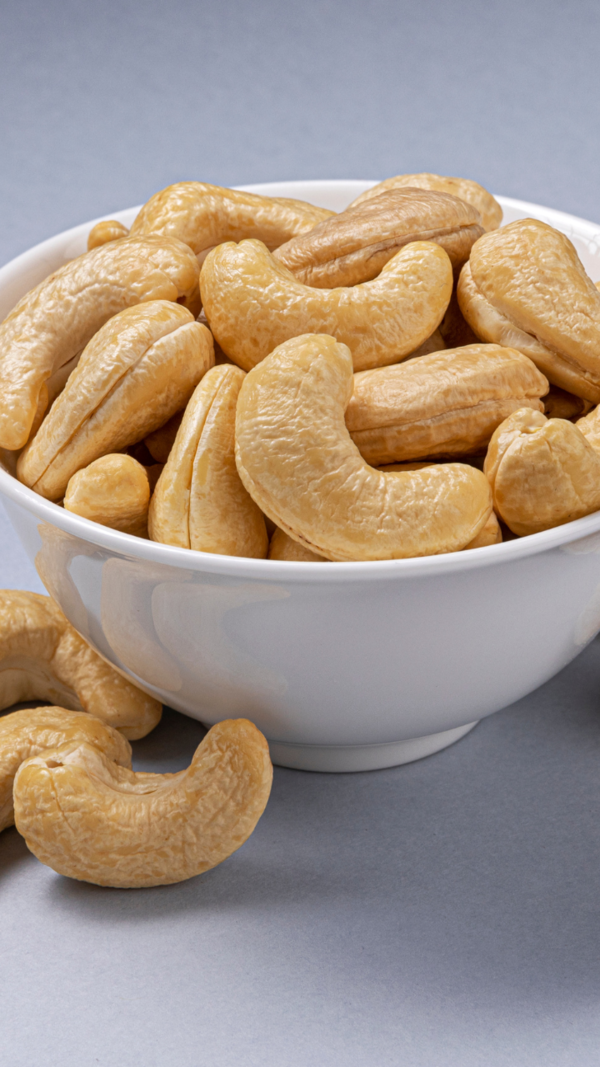- News
- lifestyle
- health-fitness
- health-news
- Winning with Multiple Sclerosis
Trending
Winning with Multiple Sclerosis

Multiple Sclerosis (MS) is a disease of the central nervous system that disrupts the flow of information within the brain, and between the brain and the body. This autoimmune disease affects principally the central nervous system that cause nerve sheath demyelination followed by axon damage and paralysis.
To spread awareness about this disease, The Times of India in association with MSN Laboratories organized a webinar on ‘Invisible Symptoms of Multiple Sclerosis’ in eight cities, on World of MS Day on May 30.
Though its prevalence was more in the West till a few years ago, India is seeing a gradual increase in cases over the past few years. MS affects the central nervous system, especially the brain, spinal cord, and optic nerves and comes with a wide range of symptoms.
Gradually Increasing Incidence
Dr. H Radha Krishna, MD DM, HOD, Care Hospital, Nampally, states, “MS is not as rare as earlier. I see at least one new case every month. But newer molecules, more affordable ones, make treatment and relief possible if one goes to a neurologist early enough; “In fact, just today we saw a case of a 23-year old, who has already had it for six months. We did an MRI and found lesions.” A neurologist spends time understanding each symptom, and only then is he sure that this is indeed a case of MS.

Symptoms
Dr. Nikileswar Reddy, MD DM, Associate Professor, Citi Neuro Center, Hyderabad, says while the initial symptoms could be common ones, like numbness, pain, giddiness, the MS onset is sudden, and often rapid. “Also, usually it is a combination, onset of visual loss in one eye, called Optic Neuritis. Isolated pain, sensory disturbances, numbness, bilateral lower limb weakness, acute urinary retention with constipation, these are some of the symptoms one may sense early.”
Even today, no one is sure why the body is attacking itself in Multiple Sclerosis. “But MS is not contagious or directly inherited. So anybody who is taking care of the patient can be rest assured that they won’t get affected,” avers Dr Hassan. Studies do indicate that genetic factors and certain environmental factors may make certain individuals more susceptible to the disease. “This is treatable, but the window of opportunity is not wide. So, it is advised to consult a neurologist immediately and get early treatment,” he added.
"Patients can also benefit from occupational therapy, physiotherapy, yoga, meditation and other relaxation exercises," added Dr Dinesh Choukse, Associate Professor, AIMS, Indore.
Affordability of drugs
Dr Y Praveen Kumar, MD DM, Associate professor, KIMS, Secunderabad says, “The good news is that current drugs are very helpful. Earlier one had to take injections, now we have so many tablets, with very good efficacy, and costs have become affordable. There is no reason to avoid this treatment if one is detected with MS.
The two areas that we need to work on is generating awareness and reducing stigma. No wonder the theme of this year’s World MS Day is Connections, as the World MS Society recognizes the need for making it a more social conversation.”
Vaccination
About vaccination, the World MS Society has itself said that its safe and should be taken in consultation with one’s neurologist. As all vaccines carry the dead virus only, there is no fear of contracting the disease. But, if one is taking strong steroids, one must stop them and only then take the vaccine, is the general opinion of doctors. Each case is individual and its best to take medical advice.
Treatments
“According to the studies, prevalence of MS varies around 5- 10 persons per lac in population. In India, around 2- 2.25 lac patients of MS are getting treated. As this disease presents with a gamut of manifestations, most of the patients are either under diagnosed or misdiagnosed. Treatment is case based, depending on the patient and his/her various investigation parameters. Steroids, injectable and oral medications help in controlling the disease. For relapsing-remitting MS, several disease-modifying therapies are available. They lower the relapse rate and work by changing the way the immune system functions,” stated Dr Praveen Kumar Yadav, consultant neurologist, Aarogyam Neuroclinic. “Deep brain stimulation is also used to treat tremors in multiple sclerosis when other medications have been ineffective,” added Dr Sitanshu Shekhar Nandi, consultant neurologist, CMRI and AMRI Hospital, Kolkata.
Stick to your life goals
One should not change their life goals, exclaimed Dr. Nasli Ichaporia, Director of Neurology at Sahyadri Super Speciality Hospital, and urged MS patients to go ahead with their plans and get married, have children, pursue their desired job or career. He added, “There is no point in delaying your dreams. Pregnancy is also not an issue for MS patients. Both therapies and medication are advancing with each passing year, so people should not worry.”
One must pay attention to the caretaker. Their role, and that of the family is also very important. Very often it is they who also need guidance to manage the MS patient’s path to recovery.
Doctors Who participated in MS Matters Campaign:
Ahmedabad:
Dr Shailesh Darji, Consultant Neurologist, Care Neuro Clinic
Dr Bhautik Tilva,Consultant Neurologist, Tilva Neurology Clinic
Dr Priyank Shah ,Consultant Neurologist, Privya Neurology Clinic & Rehabilitation Centre
Dr Devshi R Visana,Consultant Neurologist, Atharva Neuro Care
Dr Kaumil Kothari, Consultant Neurologist, Divyam Advance Neurology Clinic, Rajkot
Bhopal:
Dr Abhijeet Kohat, Associate Professor,DKS Post Graduate Institute, Raipur
Dr Dinesh Chouksey,Associate Professor, SAIMS, Indore
Dr Vinod Kumar Rai, Consultant Neurologist,CHL Hospital, Indore
Dr Alok Mandliya,Consultant Neurologist, Bombay Hospital, Indore
Dr Prateek Sharma,Consultant Neurologist, Bansal Hospital, Bhopal
Chandigarh:
Dr Dheeraj Khurana, Professor Neurology, PGIMER
Dr Amit Shankar Singh, Consultant Neurologist, Fortis Hospital, Mohali
Dr Sanjay Mishra, Consultant Neurologist, Max Hospital, Mohali
Dr Monika Singla, Associate Professor, DMC Hospital, Ludhiana
Dr Prabhjeet Singh, Consultant Neurologist, Neuro Care Centre, Amritsar
Jaipur:
Dr Dinesh Sharma, Sr. Consultant Neurologist, SDMH Hospital
Dr Suresh Gupta, Consultant Neurologist, EHCC Hospital
Dr Pushkar Gupta, Consultant Neurologist, CK Birla Hospital
Dr Dinesh Khandelwal, Consultant Neurologist, SMS Medical College & Hospital
Dr Neetu Ramrakhiani, Consultant Neurologist, Fortis Escorts Hospital
Kolkata:
Dr Sitanshu Sekhar Nandi, Consultant Neurologist, CMRI & AMRI Hospital
Prof.(Dr) Amar Misra, Consultant Neurologist, NRSMCH
Dr Amit Haldar, Consultant Neurologist, Fortis Hospital & Park Clinic
Dr Praveen Kumar Yadav, Consultant Neurologist, Aarogyam Neuroclinic, Durgapur
Dr.Haseeb Hassan, Consultant Neurologist, R N Tagore Hospital
Lucknow:
Dr Sunil Pradhan, Prof & Head, Neurology, SGPGIMS
Dr Atul Agarwal, Ex Prof & Head Neurology, KG Medical University
Dr Ajai Kumar Singh, Prof & Head Neurology, RML Institute of Medical Sciences
Dr Abdul Qavi, Asst. Prof. of Neurology, RML Institute of Medical Sciences
Dr Ravi Kant Mall, Consultant Neurologist, Gorakhpur
Patna:
Dr Nitish Kumar, Consultant Neurologist, Neuro Centre
Dr Abhishek Kumar, Consultant Neurologist, Shyam Neuro Clinic
Dr Munish Kumar, Consultant Neurologist, Neurology Clinic
Dr Sanjeev Kumar, Consultant Neurologist, Laxmi Neuro Centre
Pune:
Dr N R Ichaporia, Director Neurology, Sahyadri Hospital
Dr Shripad Pujari, Consultant Neurologist, Deenanath Mangeshkar Hospital & Noble Hospital
Dr Rahul Kulkarni, Consultant Neurologist , Dinanant Mangeshkar Hospital
Dr Nilesh Palasdeokar, Consultant Neurologist, Brain & Spine Clinic
Dr Amitkumar Pande, Consultant Neurologist, Dr Pandes Neuro & Physio Clinic
Hyderabad:
Dr.H.Radha Krishna, HOD, Care Hospital, Nampally
Dr.Y.Praveen Kumar, Associate Professor, KIMS, Sec'bad
Dr.Nikhileswar Reddy, Associate Professor, Citi Neuro Centre
Disclaimer: Content Produced by Times - Red Cell
End of Article
FOLLOW US ON SOCIAL MEDIA









